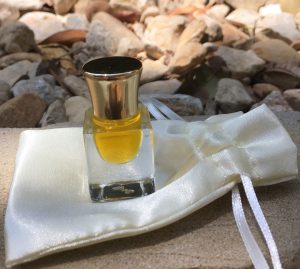What Is an All-Natural Perfume? Exploring Benefits, Key Ingredients, and More
December 31st, 2024 by JoAnne Bassett
The demand for all-natural products has grown significantly in recent years, and perfumes are no exception. Many consumers now seek fragrances that align with their values of sustainability, health-consciousness, and environmental responsibility. But what is an all-natural perfume, and how does it differ from traditional fragrances? This article explores the concept, its benefits, key ingredients, and what to consider when choosing one.
What Is an All-Natural Perfume?
What is an all-natural perfume? At its core, it refers to a fragrance made entirely from naturally sourced ingredients. Unlike conventional perfumes that often contain synthetic, toxic chemicals, all-natural perfumes rely on plant-based extracts, essential oils, and other natural compounds for their scent profiles. These products avoid artificial additives like phthalates, parabens, and synthetic dyes commonly found in mass-produced fragrances.
The term “all-natural” can vary depending on the brand or certification standards. However, it generally implies that every ingredient used comes from nature without chemical processing. This distinction is important for those who prioritize transparency and purity in their personal care products.
Benefits of Choosing All-Natural Perfumes
Switching to all-natural perfumes offers several advantages for both individuals and the environment. Here’s a closer look at some of the key benefits:
1. Avoidance of Synthetic Chemicals
Traditional perfumes often contain synthetic chemicals that can irritate sensitive skin or trigger allergies. All-natural perfumes eliminate these risks by using plant-based ingredients that tend to be gentler on the skin.
2. Eco-Friendly Production
Natural perfumes typically have a lower environmental impact compared to synthetic options. The production process avoids petroleum-based ingredients and minimizes the release of harmful chemicals into the air or water systems.
3. Unique and Subtle Scents
All-natural perfumes often feature complex scent profiles derived from real plants, flowers, spices, and resins. These fragrances tend to be more subtle than synthetic ones, offering a unique sensory experience that evolves over time as the natural ingredients interact with your body chemistry.
4. Support for Sustainable Practices
Many brands that produce all-natural perfumes source their ingredients responsibly, supporting fair trade practices and sustainable farming methods. By choosing these products, consumers contribute to ethical business practices.
Key Ingredients Found in All-Natural Perfumes
Understanding the components of all-natural perfumes can help you make informed decisions when purchasing one. Commonly used ingredients include:
– Essential Oils: These concentrated plant extracts provide the primary fragrance in most natural perfumes. Popular options include lavender, rose otto, sandalwood, ylang-ylang, and citrus oils.
– Absolutes: Similar to essential oils but extracted using different methods, absolutes capture the rich scents of flowers like tuberose or jasmine.
– Resins: Natural resins such as frankincense or myrrh add depth and warmth to perfume blends.
– Carrier Oils: Lightweight oils like jojoba or fractionated coconut oil serve as a base for diluting essential oils while ensuring they remain skin-safe.
– Botanical Extracts: Additional plant-based extracts may be included to enhance scent complexity or provide therapeutic benefits.
These ingredients combine to create layered fragrances without relying on synthetic additives.
How to Choose an All-Natural Perfume
When shopping for an all-natural perfume, consider the following tips:
1. Check Ingredient Labels
Look for transparency in ingredient lists. Brands committed to natural formulations should clearly state what goes into their products. The term fragrance or fragrance oils means they are synthetic perfumes.
2. Research Certifications
Certifications such as USDA Organic or Ecocert can indicate that a product meets specific natural or organic standards.
3. Test Before Buying
Natural perfumes may smell different on your skin compared to how they smell in the bottle due to individual body chemistry. Whenever possible, test a small amount before committing to a purchase.
4. Evaluate Longevity
Keep in mind that natural perfumes may not last as long as synthetic ones because they lack chemical fixatives. Reapplication might be necessary throughout the day.
5. Consider Packaging
Some brands prioritize eco-friendly packaging as part of their commitment to sustainability—a factor worth considering if environmental impact matters to you.
Final Thoughts
For those asking themselves what is an all-natural perfume, it’s clear that these fragrances go beyond just smelling good—they represent a shift toward healthier choices and environmentally conscious living. By embracing all-natural alternatives made from pure botanical ingredients, you can enjoy unique scents while supporting sustainable practices. You can also avoid unnecessary exposure to synthetic chemicals that are hormone disruptors and more.
Whether you’re new to natural fragrances or looking to expand your collection, understanding their benefits and composition ensures you make thoughtful decisions tailored to your preferences and values.